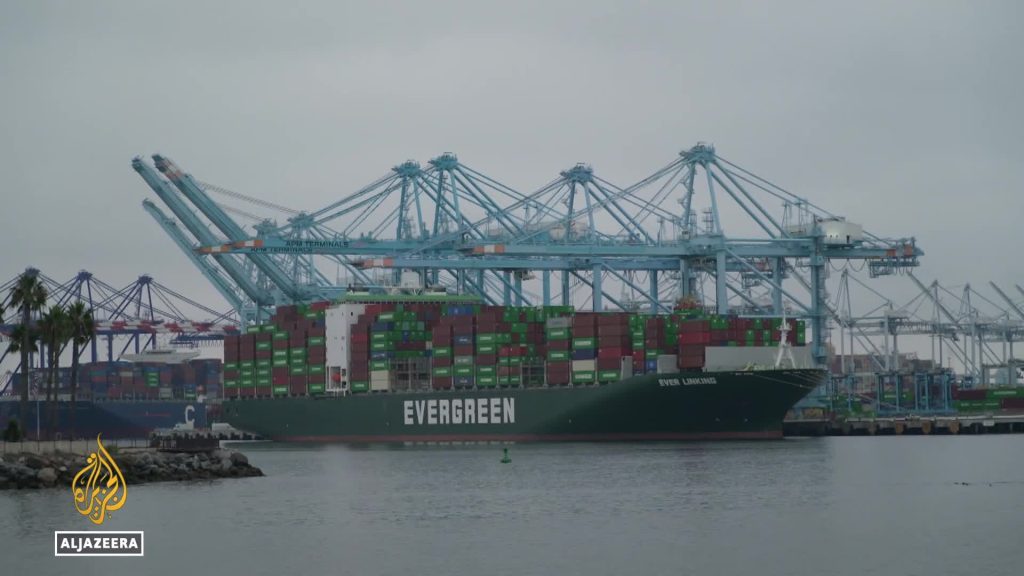Escalating Trade Tensions: Trump’s Tariffs and Retaliatory Measures
The international trade landscape was significantly altered in 2024 when then-US President Donald Trump imposed substantial tariffs on imports from key trading partners: Canada, Mexico, and China. The tariffs, implemented through executive orders, targeted a range of goods, including a 25% levy on imports from Canada and Mexico, and a 10% tariff on goods from China. While energy imports from Canada were subject to a lower 10% tariff, the overall impact was substantial, triggering immediate retaliatory actions from both North American neighbors. Trump justified the tariffs as necessary measures to address the influx of fentanyl and undocumented migration into the US, declaring a national emergency to underpin his actions. This assertion, however, was met with criticism and concern from both domestic and international observers, who warned of the potential for a damaging trade war.
The immediate responses from Canada and Mexico were swift and decisive. Canadian Prime Minister Justin Trudeau announced matching tariffs on up to $155 billion worth of US imports, underscoring the potential impact on American consumers. Mexican President Claudia Sheinbaum similarly ordered retaliatory tariffs and other measures, while vehemently rejecting Trump’s accusations that the Mexican government was complicit in the fentanyl crisis. The absence of an immediate response from China did little to quell anxieties about the broader global implications of Trump’s actions, particularly given the already tense trade relationship between the US and China. These initial reactions highlighted the potential for a cascading series of retaliatory measures that could disrupt global trade and harm economies on all sides.
The economic implications of these tariffs were a source of significant concern. Experts warned of the potential for rising prices on consumer goods, inflation, and economic slowdown, particularly in Canada and Mexico, whose economies are heavily reliant on trade with the US. In the US, economists warned of a potential trade war that could erode economic growth and raise prices for consumers and businesses. The tariffs effectively increased the cost of doing business for companies relying on imports from the targeted countries, translating to higher prices for consumers. The timing of the tariff implementation, coinciding with Trump’s return to the presidency, further fueled political debate and placed the issue of trade firmly at the center of national discourse.
The specific mechanisms of the tariffs involved a complex set of rules and timelines. The tariffs were slated to take effect at the beginning of the week, with exemptions for goods already in transit. The White House offered no specific criteria for lifting the tariffs, leaving the targeted countries in a state of uncertainty. Furthermore, the administration indicated that there would be no exclusions from the tariffs and hinted at the possibility of increasing the duties if Canada, Mexico, or China retaliated against US exports. The US also targeted Canada’s "de minimis" exemption, which had previously allowed small shipments under $800 to enter the US duty-free. This move, justified by claims that the exemption was being exploited for the trafficking of fentanyl and its precursors, further strained relations with Canada.
The political landscape surrounding the tariffs was deeply divided. While some Republicans applauded Trump’s actions, many Democrats and industry groups expressed serious concerns about the potential economic fallout. The National Foreign Trade Council, for example, warned of potential price increases on a wide range of goods and urged all parties to seek a rapid resolution to avoid further escalation. Democrats criticized the tariffs as inflationary and harmful to American consumers. This partisan divide further complicated the already complex trade situation, making a swift and mutually agreeable resolution seem increasingly unlikely.
The trade dispute initiated by Trump’s tariffs had far-reaching consequences, impacting not only the targeted countries but also the global economy. The retaliatory measures taken by Canada and Mexico demonstrated the interconnectedness of international trade and the potential for individual actions to spark wider conflicts. The tariffs and subsequent retaliations raised concerns about the stability of global supply chains, the potential for increased inflation, and the overall health of the global economy. The episode served as a stark reminder of the delicate balance of international trade relationships and the potential for protectionist policies to disrupt established norms and create economic uncertainty.










